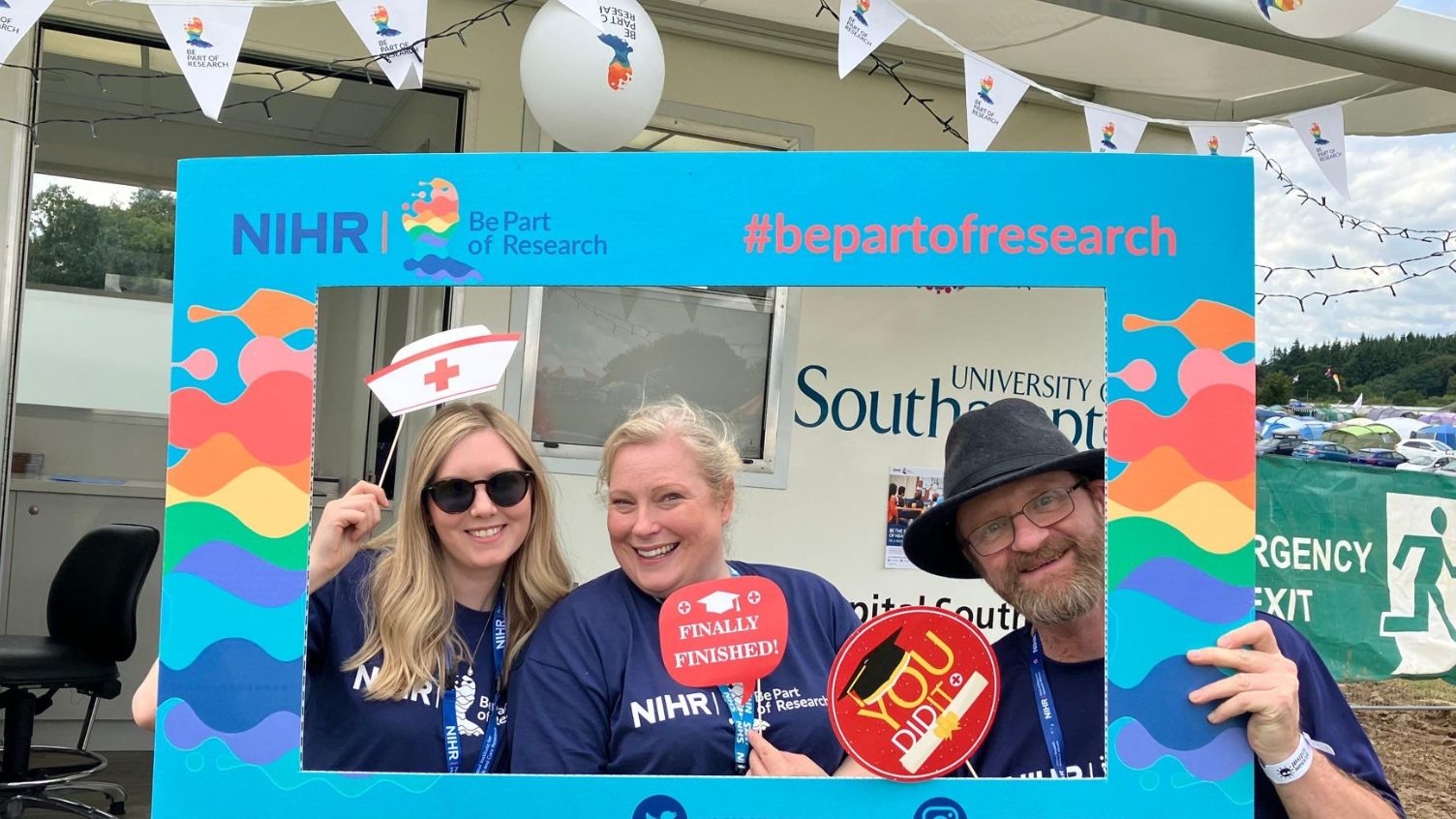Researching the future of midwifery
- 6 May 2022
- 4 min read
Emma Meadows is a Research Midwife at St Richards Hospital in Chichester.
CRN Kent, Surrey and Sussex talks to Emma Meadows, Research Midwife at St Richards Hospital in Chichester, about her journey into this unique and expanding area of clinical research
It is difficult to think of a field of medicine more steeped in tradition than midwifery. It is probably the oldest area of clinical practice, and one that the vast majority of us have benefitted from, at least once.
The incredible history of the profession is one of its greatest strengths, and midwives working today have centuries of experience to call upon. You may think that in a field so well-established, research might be somewhat unnecessary. But this is far from the case, explains Research Midwife, Emma Meadows:
"There are so many exciting studies taking place at the moment, in vital areas of practice. When I qualified, 20 years ago, evidence based practice was very new, but now it informs much of what we do but there is still a long way to go. We used to have to really look and hunt down studies that we could participate in, whereas now, we are being approached by research teams, which shows how far we have come - and how fast," she says.
A growing profession
Emma has watched the profession of research midwifery grow from the inside. She was doing the work before the job really existed. Her first exposure to research was when she worked in the antenatal day assessment unit at St Richards Hospital. This role involved working closely with the maternal medicine consultant, who opened and worked on a study exploring epilepsy in pregnancy.
"I began to work on this study in addition to my clinical role," Emma explains. "There was no research midwife at that point, so the Research Department and Research Nurses helped support us with the paperwork. But recruitment to the study was really successful, and that was recognised by the head of research, who established a secondment post. That allowed me to formally work on research along with my clinical work."
This enabled Emma to dedicate time to building up a research portfolio for the hospital. She found that once that door was opened, more and more studies came in. After a year of this secondment, it was decided to make the post permanent.
Building strong relationships
Did dedicating all of this time to building a research portfolio have a negative impact on Emma's relationship with the women she was working with? Absolutely not, she says in fact quite the opposite:
"Of course I talk to mothers about the studies, but that is only the beginning of our relationship, not the end. It may be that 60% of our conversation relates to the research, but the other 40% is general midwifery, pregnancy and babies, so you build up a very good relationship.
"And there is a great deal of continuity, in that you are following up with the recruits regularly - sometimes every week," she says. "When you are one-to-one with that woman, in that moment, she is your only concern. You don't have a whole ward of people to look after, so that one person has your sole attention. And that's really nice.
"We are currently working on a recurrent miscarriage study, which requires us to follow up with the participant every three months, over a period of two years," says Emma. "You don't get that in maternity. It is a lovely relationship to build."
Time plays an interesting role in Research Midwifery. The nature of maternity means that, as Emma puts it, "we don't tiptoe around as midwives. We get right to it.
"In our profession you have to build very close relationships very quickly. We are very used to having very personal conversations with women very early on, and in a lot of detail," she says. The result of this is often forming a strong bond of trust between the mother and the midwife. And when it comes to recruiting into research studies, this trust is essential.
"I have always been pleasantly surprised by how engaged women are. Studies always come about because there's equipoise in the care that we're giving, when you explain where studies come from and why it's happening they very often understand and are really open to having the opportunity to be part of research.
New research
This close relationship that is established between mother and midwife is uniquely strong. But Emma says that this relationship can be put under pressure, often in circumstances where it is most valuable. This is an area she hopes to investigate herself.
"I am part of the NIHR Applied Research Collaboration Kent, Surrey and Sussex SpringBoard award, which gives me the ability to dedicate time to develop my own research idea, and also develop my skills as a researcher. My particular interest, and research idea surrounds the mother/midwife relationship following preterm birth."
The SpringBoard Awards are supported by funding from CRN KSS and HEE South East, to support applicants in developing their research skills.
Emma's long career and considerable experience as a midwife means she is well-positioned to identify areas of potential research, based on her patient interactions. Funding is vital to enable Emma, and others like her, to turn those ideas into tangible projects. "It is very early days," she says. "But without the SpringBoard award I would not be able to do it."


